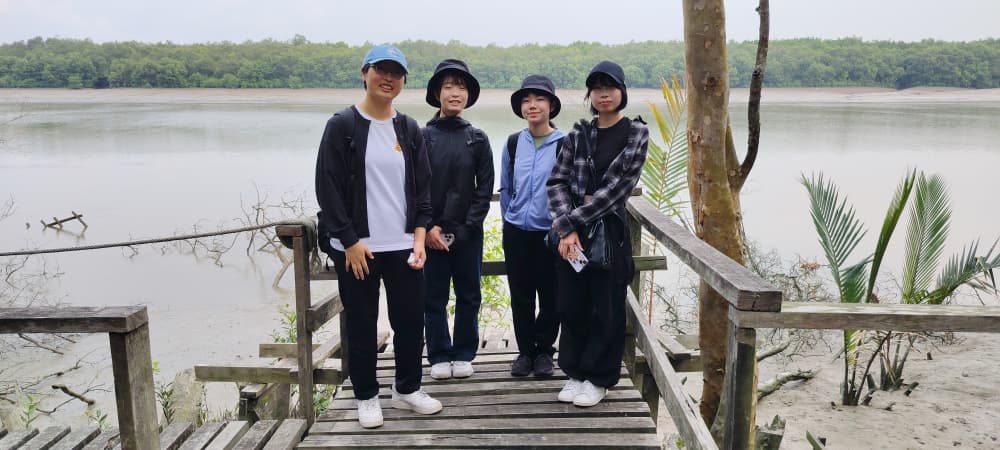Shah Alam, Malaysia, September 2025 – The International Sustainable Coastal and Environmental Leadership Program 2025 (ISCALE2025) has set a new benchmark for academic collaboration and experiential learning. Hosted by UiTM Global in partnership with the National Institute of Technology, Akashi College, Japan, the program brought together four dynamic Japanese students for a two-week summer internship that combined academic rigor, cultural immersion, and environmental leadership training.
Spanning from August 17 to 31, 2025, ISCALE2025 was meticulously designed under the leadership of AP Dr. Marfiah Ab. Wahid, supported by a dedicated team comprising Ts. Dr. Nurul Rabitah Daud, Ts. Dr. Azlinda Saadon, Ir. Dr. Nur Syahiza Zainuddin, Ts. Dr. Nurhidayah Hamzah, and Ts. Dr. Irma Noorazurah Mohamad. The program’s success was further strengthened by the collaboration of the International Student Development team at UiTM Global and the industry partner Landasan Lumayan Sdn. Bhd. This smart partnership between UiTM and the National Institute of Technology, Akashi College, stands as a model of how academic institutions and industry can unite across borders to bridge knowledge, culture, and innovation for real-world impact.
Learning Beyond Borders
The program featured masterclasses on Sustainable Development Goals (SDGs), technical workshops on plastic waste management, microplastic analysis, river waste analysis, and the use of VR360 technology for environmental storytelling. Participants also engaged in eco-printing workshops using natural dyes and delivered collaborative SDG presentations—a testament to the program’s emphasis on applied learning and creative problem-solving.
Cultural Exchange Meets Environmental Science
Beyond the labs and workshops, students experienced Malaysia’s rich cultural heritage through traditional music and dance, Malaysian games, and heritage tours across Melaka, Putrajaya, and Kuala Lumpur. Guided mangrove explorations and river monitoring activities provided hands-on environmental education, connecting classroom concepts to real-world ecosystems.
A Model for Future Global Programs
As Assistant Vice-Chancellor (International) Associate Prof. Datin Dr. Norazida Mohamed emphasized, “This partnership shows how universities can work hand-in-hand to nurture future leaders who are not only academically strong but also globally aware and socially responsible.”
The farewell ceremony showcased cross-cultural appreciation, with Malaysian and Japanese students exchanging cultural performances, origami art, and heartfelt reflections. For UiTM and Akashi College, ISCALE2025 was more than a summer program—it was a model of international academic collaboration empowering the next generation of global environmental leaders.
With its success, ISCALE2025 paves the way for future collaborations between UiTM and Akashi College, reaffirming the role of smart partnerships in driving sustainable education and research.






